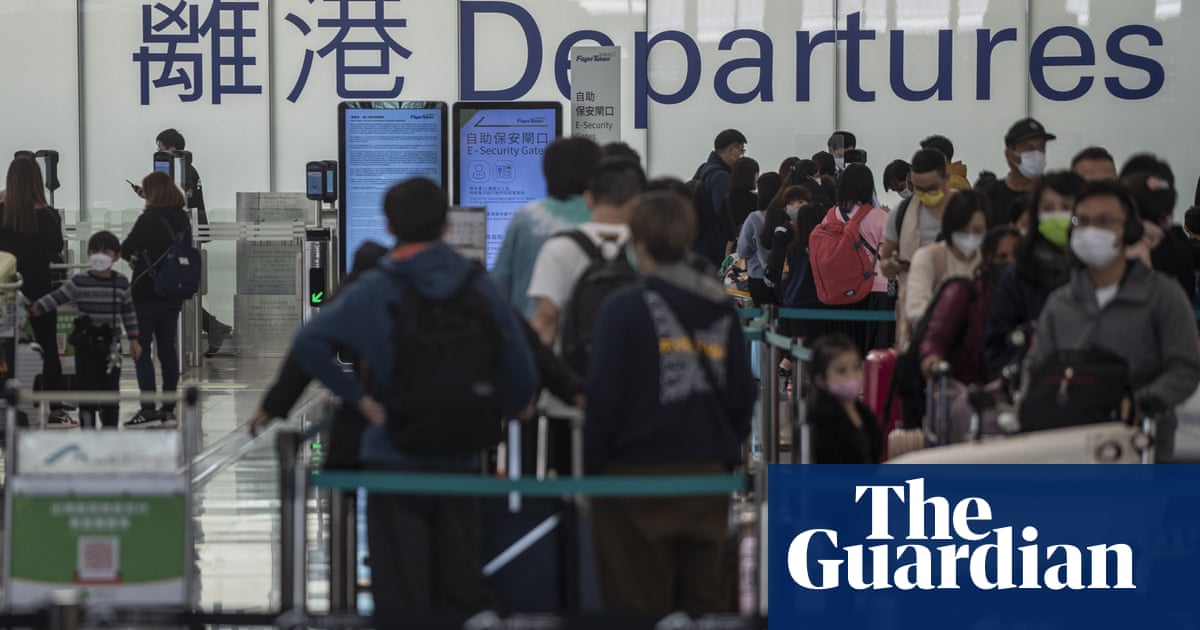
Australia is planning to introduce wastewater testing for incoming flights in an attempt to gather more information about the possible entry of new Covid variants.
The health minister, Mark Butler, announced the measure on Monday in a round of interviews defending the decision to reimpose pre-flight Covid testing for passengers from China as necessary because of a “absence of comprehensive information” about the disease in China.
The announcement on Sunday has already prompted calls to expand pre-flight testing, with the independent MP Monique Ryan questioning if it was now “time to require pre-travel testing of all travellers entering Australia from Europe, the US, Africa and Asia”.
On Monday Butler told Radio National there is “no evidence right now” of new emerging variants in China and that “the evidence does suggest that the main driver of this very large wave in China is a variant of Omicron”, the dominant strain in Australia and around the world for the last 12 months.
“It’s a variant called BF.7 which is a derivative of the BA.5 variant of Omicron which has been the main driver of Covid cases in Australia for the last 6 or 7 months, he said. “So it’s a variant that we’re familiar with that has been in Australia for several months – BF.7 – and, as I said, there’s a broad consensus there’s no imminent public health threat.”
Butler said Australia had imposed pre-flight testing for travellers from China “out of an abundance of caution” due to “what the World Health Organization pointed to [as a] lack of information that would allow us to identify very quickly the emergence of that new variant”.
“What we’ll be doing is looking to introduce wastewater testing from aeroplanes that land in Australia. That’s an Australian innovation that’s been picked up by America and some other countries.
“That again gives us a good line of sight, if there are Covid cases coming into Australia, what the variants are … and very early information about the possibility of a new variant emerging as well.”
In October 2021 the Australian science agency CSIRO released a study with Qantas and the University of Queensland showing that wastewater testing can be an effective way to screen incoming passengers for Covid-19. In the last week, the US Centre for Disease Control and the UK both announced they are considering use of wastewater testing.
Australia’s mandatory testing within 48 hours of departure will apply to travellers from Hong Kong and Macau, in addition to those from mainland China, and is set to begin on Thursday.
But on Monday, Butler could not say whether travellers will be required to take a PCR test or if they can use the quicker, more accessible rapid antigen tests.
“Those details are being finalised, right now, they’ll be published very shortly, including on the Smartraveller website and including in … Mandarin and Cantonese – as well as [in] English obviously, as well.”
Earlier, Butler told Channel Seven’s Sunrise that Australia’s decision “reflects decisions that have been taken across the world by countries in North America, in Europe and across Asia”.
“… for example, by Japan, by India, South Korea, Malaysia and others,” he said. “So this, we think, is a balanced decision, a modest decision, but it will start to ensure that we have better information about what is happening in China right now.”
On Thursday Prof Dominic Dwyer, an Australian infectious diseases physician, told Guardian Australia a lack of transparency about Covid in China was worrying because “we don’t know what variants are circulating in China at the moment … [and] whether those variants are different in terms of their response to vaccination”.
The end of China’s zero-Covid approach comes as case numbers surge, with low vaccination rates especially among elderly people. Ascertaining the spread and severity of Covid is more difficult than ever as Beijing has stopped publishing daily case numbers and ended mass testing.
“They’ve changed very quickly from a zero-Covid approach to completely relaxing things, so maybe that’s happened too quickly to keep up,” said Dwyer, who was one of the experts tasked with travelling to Wuhan early in 2021 to investigate the origins of the pandemic in a report for the WHO.


